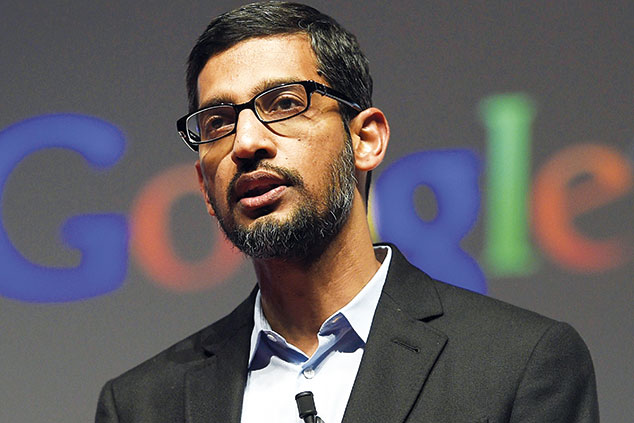
Wall Street “took an axe to Google” this week, says Richard Waters in the Financial Times. The shares fell by 7% after Google’s parent company Alphabet revealed that despite growing by 17% year-on-year in the first quarter, revenue was $1bn less than analysts expected. Google’s advertising revenue (worth 85% of Alphabet’s sales) expanded by just 15%, its lowest rate of expansion in four years. Investors worried that this “might signal a turning point in Google’s core advertising business”, and their fears were hardly allayed by Alphabet’s “lack of detail”. It blamed several one-off factors, including the strength of the US dollar and a tough comparison with a strong quarter last year.
Google claims that much of the slowdown in advertising growth was due to changes to YouTube, says Margi Murphy in The Daily Telegraph. That division saw a deceleration in clicks on advertisements owing to changes the company made last year “to eliminate fake news and harmful content”. Don’t expect things to improve in the near term. Google’s chief executive Sundar Pichai said that “more changes were in the works”, which could “suppress popular – but sometimes offensive or potentially dangerous – videos and cause… views to drop”.
Aside from the slowdown in sales growth, the news wasn’t all bad, notes Dan Gallagher in The Wall Street Journal. Costs grew by only 9% year-on-year after averaging 27% growth over the previous eight periods, producing operating income “that would have been well ahead of Wall Street’s estimates if not for the $1.7bn fine” levied by the European Commission during the quarter. Sadly, “while the fine for violating advertising rules was known, the notable slowdown in advertising wasn’t”.
Just a rough patch?
One “slightly wobbly” quarter doesn’t detract from Google’s “impressive track record of steady growth” since a rough patch several years ago, says Shira Ovide for Bloomberg. Indeed, most companies with Google’s revenue “would be thrilled” to grow at a rate that was a “comedown” for Alphabet. Unfortunately, technology investors “are an anxious lot in these late days of US economic expansion and extra scrutiny of tech companies’ power”. Recent “growth hiccups” at Amazon, Apple and Facebook have underscored the “potential vulnerability” of the US tech superstars’ “potent combination of rapid growth and alluring profits”.
But investors may not be overreacting, according to Robert Cyran on Breakingviews. The online advertising market “is nowhere near tapped”; Facebook, Google’s main competitor, reported 26% growth in the first quarter, year-on-year. Google’s problems are made more perplexing by the fact that in the last year Alphabet has been “investing heavily” in order to find “new sources of revenue”, with capital expenditure increasing to $25bn. While Alphabet “is not easily knocked off course”, the slowing growth, combined with a reduction in investment to $5bn in the first quarter, “suggest it might be changing pace”.
Britain’s ten most-hated shares
These are the UK’s ten most unpopular firms, based on the percentage of stock being shorted (the “short interest”). Short-sellers aim to profit from falling prices, so it helps to see what they’re betting against. The list can also highlight stocks that may bounce on unexpected good news when short-sellers are forced out of their positions. Oil-services firm John Wood Group has made an appearance in the top ten after admitting that it will take longer than expected to cut its debt load. Meanwhile, investors have been concerned that rising wages and commodity prices will hamper food producer Greencore.